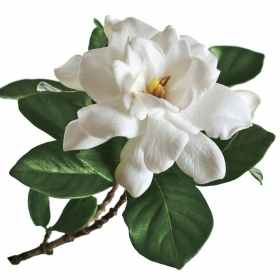Hill Women traces the author’s journey from food stamps in Eastern Kentucky to the halls of Harvard Law to a comfortable, political life in Louisville. It sounds clean and simple, a success story we’ve heard before. It isn’t. This is no arrogant bootstraps narrative, no poverty porn. It contains no overly lyrical descriptions of the mountains or its people. It aims higher than memoir to capture with grace and nuance the identity of Appalachian women and in doing so, acknowledge the role that luck, education, and community play in changing a life.
Cassie Chambers ’10, who transferred to Yale from Wellesley, writes in a straightforward, no-nonsense style, moving seamlessly between personal stories and statistics, drawing lines between environmental carelessness and generational illness, sexism and opportunity, education and mobility. In a plain, honest way, she is self-critical, and every anecdote is infused with gratitude for the people who shaped her. This humility is what makes the book unexpectedly emotional. The moment Granny uses her savings to buy Chambers a guitar, or when Chambers’ mother takes on the high school principal to demand her daughter’s education be equal to the boys’—these are the moments the author’s life changed, and the accumulation of these small, selfless acts is what determined her path into the world. The narrative momentum accelerates when Chambers finds her place during law school, at the Harvard Legal Aid Bureau, which gives her both purpose and a path back to Eastern Kentucky. Readers of David Dow, founder of the Texas Innocence Network, will appreciate her explanation of the maddening legal intricacies rigged against the poor—and the way the emotional weight of those cases starts to shift her personal trajectory. The second half of the book presents a personalized, nuanced understanding of the psychology of poverty alongside a reflective, empowered desire for change.
For its focus on matriarchy and acknowledgment of luck as a form of privilege, Hill Women is in many ways an anti-Hillbilly Elegy, which Chambers references slyly, not by name. For those tempted to draw too many parallels—Eastern Kentucky, Ivy League education, the author’s burgeoning political career—read to the stunning, heartbreaking end. This is a book that works hard to do right by its characters. It is in itself a journey of self-discovery. Chambers writes, “I believe the mountains are worth saving.” Her memoir is an exploration of having, leaving, and finding a community of women, and it is infused with an uncommon optimism for a place Chambers demands you do not dismiss.
Kate Erickson ’05 is a TV writer. She grew up in Kentucky.








We ask that those who engage in Wellesley magazine's online community act with honesty, integrity, and respect. (Remember the honor code, alums?) We reserve the right to remove comments by impersonators or comments that are not civil and relevant to the subject at hand. By posting here, you are permitting Wellesley magazine to edit and republish your comment in all media. Please remember that all posts are public.